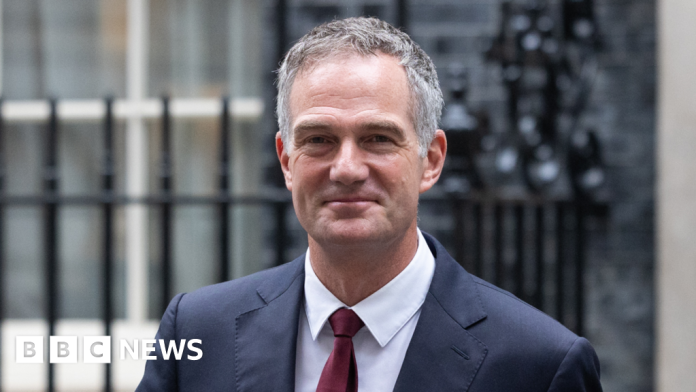The heads of the UK’s national institute for artificial intelligence (AI) have told staff they accept recent months have been “challenging” for staff as the charity undergoes “substantial” change.
It comes after staff raised “serious and escalating concerns” in a whistleblowing complaint this week submitted to the Charity Commission.
They warned that the body – which receives £100m from the government – is at risk of collapse after Technology Secretary Peter Kyle instructed it to prioritise defence, and threatened to pull its funding if it did not.
In a letter seen by the BBC, Chair Dr Doug Gurr said the Turing institute would “step up at a time of national need”.
He said it had already established a new senior working group comprising government officials and Turing institute staff.
However he said defence should not be the “sole focus” and some work on healthcare and environmental issues would continue in line with the aims of both the government and private investors.
Whistleblowers have described the management’s response as “performative”.
“Just talk, no action, nothing has changed,” they said, speaking to the BBC on condition of anonymity because they fear losing their jobs for speaking out.
Dr Gurr and Chief Executive Dr Jean Innes did not respond directly to accusations by the whistleblowers about a toxic internal culture of “retaliation” and “defensiveness”.
The pair said they had not seen the letter sent from whistleblowers to the Charity Commission, which has been shared with the BBC.
“We are committed to conducting our business with honesty, integrity and transparency and believe that a culture of openness and accountability is essential,” they wrote, and linked to the Turing institute’s whistleblowing guidelines.
Founded in 2015 as the UK’s leading centre of AI research, the Turing institute, which is headquartered at the British Library in London, has been rocked by internal discontent and criticism of its research activities.
The shift to focusing on defence represents a significant pivot for the publicly funded organisation.
Both the whistleblowers and the technology secretary have said they want new leaders at the Institute – but there was no mention of any change in the management team in the letter.
A number of senior staff have left the organisation in recent months, and bosses said more people would either be made redundant or not have their contracts renewed as the restructure continues.

